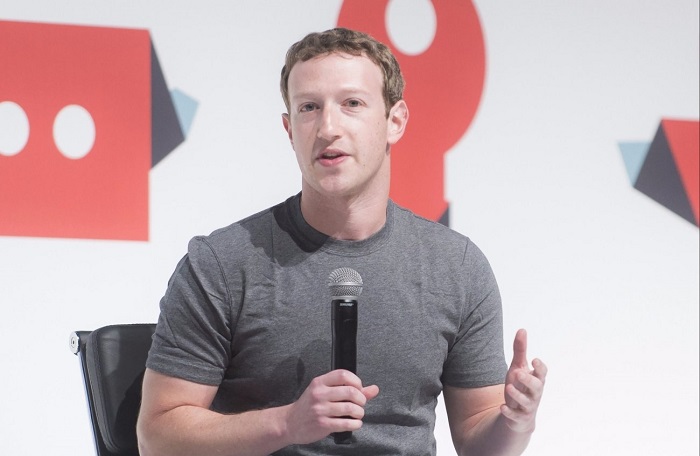
Mark Zuckerberg’s smartphone preference breaks away from the typical Silicon Valley trend. While most tech leaders flaunt the latest Apple devices, Zuckerberg openly embraces Samsung phones, a choice that surprises many and defies expectations.
For years, Zuckerberg has used Samsung smartphones, praising their quality, flexibility, and performance. This preference stems from his identity as an “Android guy,” appreciating the vast global reach and openness of Android devices over Apple’s tightly controlled iOS ecosystem.
In a 2020 conversation with tech YouTuber Marques Brownlee, Zuckerberg highlighted how Samsung phones offered flexibility and user experience that aligned better with Meta’s vision.
He encouraged Meta’s developers to use more Android devices to ensure the company’s products perform well across diverse platforms, catering to a broader audience.
Zuckerberg’s choice is not just about hardware; it reflects a deeper philosophy about technology accessibility and innovation. Unlike Apple’s closed environment, Android’s open-source nature allows developers to experiment and customize, which aligns with Zuckerberg’s broader ambitions for Meta’s ecosystem.
This preference sets Zuckerberg apart in Silicon Valley, where Apple products are often considered the status symbol of choice among tech elites. His preference challenges the conventional wisdom that the “best” tech is synonymous with Apple.

While Zuckerberg remains loyal to Samsung for now, his gaze is firmly fixed on a horizon beyond smartphones. The Meta CEO envisions a future where the smartphone as we know it becomes obsolete, replaced by a new generation of devices.
He believes augmented reality (AR) glasses will replace the phone as the primary interface for digital interaction. These glasses would seamlessly merge the physical and digital worlds, allowing users to access messages, calls, navigation, and notifications through simple gestures and voice commands.
Zuckerberg’s vision imagines a device no larger than a pair of reading glasses but packed with powerful AR features. Unlike the bulky virtual reality headsets of today, these glasses would be lightweight, stylish, and socially acceptable for everyday wear.
Meta has been aggressively developing AR hardware, focusing on practical features like navigation, calendar alerts, and real-time notifications. The company describes this technology as a “smartwatch for your eyes,” aiming to make digital information more accessible and integrated into daily life.
Despite past failures in AR technology, such as Google Glass, Zuckerberg is confident this time will be different. He argues that both technology and public attitudes have matured, making AR glasses more viable for mass adoption.
The idea of wearing connected glasses all day raises many questions about comfort and privacy. Concerns linger about how society will accept people wearing devices that can record and analyze their surroundings in real time.
Privacy advocates warn about the potential for constant surveillance and data collection through AR glasses, raising ethical and legal questions. Meta has publicly assured users that privacy and security will be fundamental pillars of their AR ecosystem, although skepticism remains widespread.
Social acceptance is another major hurdle. Early attempts at AR wearables failed partly because people found them awkward or intrusive. Meta is striving to overcome these barriers with sleek designs and user-friendly interfaces.
Zuckerberg acknowledges these challenges but remains optimistic, believing AR glasses represent a fundamental shift in how humans access and experience information. This belief fuels Meta’s massive investments in AR technology.
Recent public sightings have confirmed Zuckerberg’s continued use of Samsung devices. Photos from Taylor Swift’s Eras Tour show him holding what appears to be a Samsung Galaxy S21 or S21+.
This choice reinforces Zuckerberg’s commitment to Android, which dominates global smartphone markets due to its diversity and accessibility. It also signals Meta’s strategic alignment with the Android ecosystem as a platform for future innovation.
While many in Silicon Valley are glued to their iPhones, Zuckerberg’s preference highlights a deliberate strategic choice to cater to the broader Android audience rather than a niche market.
The contrast between Zuckerberg’s phone choice and that of other tech moguls highlights his distinctive approach. It reflects a willingness to challenge conventions and prioritize broad user engagement over exclusivity.
Zuckerberg’s long-term vision goes beyond smartphones to an immersive metaverse — a digital layer over the physical world. He believes AR glasses will be the gateway to this new reality.

In this vision, phones will be relegated to history books, replaced by technology worn on the face. Users will text, scroll, and make calls without ever looking at a screen.
The metaverse is expected to transform daily interactions, allowing people to blend physical presence with digital experiences seamlessly. Zuckerberg imagines people working, socializing, and playing in these augmented spaces.
Meta is pouring billions into this vision, betting that the future of social interaction will be spatial and immersive. AR glasses are just the first step in this journey.
While the smartphone remains the dominant device today, Meta’s investment in AR and the metaverse reflects a bet on tomorrow. Zuckerberg sees beyond current tech trends to what people will need in the coming decades.
By embracing Android as the current platform and investing heavily in AR hardware, Meta aims to control the next wave of personal technology. Zuckerberg’s choice of Samsung today ties into a broader strategic vision.
The goal is to make digital experiences seamless and always present, moving from pockets to faces. This transition will redefine how people communicate, work, and live.
For Meta, it’s not just about making new devices — it’s about reshaping reality itself through technology.

Choosing Android over iPhone allows Meta to reach a massive global market, especially in emerging economies where Android dominates. This aligns with Meta’s goal of building platforms for billions of users, not just affluent elites.
Android’s open system also lets Meta develop more freely and customize deeply, crucial for integrating AR glasses and other futuristic tech. Zuckerberg’s team understands that the future will require hardware and software innovations beyond what Apple currently offers.
Investing heavily in AR positions Meta ahead of competitors still focused solely on smartphones or virtual reality. This strategic positioning could define Meta’s role in the tech ecosystem for decades.
Despite Zuckerberg’s bold vision, several risks remain. AR glasses must overcome not only technical hurdles but also privacy concerns and societal acceptance.
There’s also the challenge of building compelling content and services that justify wearing glasses all day. If Meta succeeds, the payoff could be enormous — creating a new platform for socializing, working, and entertainment.
If it fails, billions invested could go to waste, and the smartphone era will continue unchallenged. Zuckerberg’s bet on Android and AR is risky, but that’s the nature of innovation.

Mark Zuckerberg’s smartphone choice is more than a personal preference; it’s a statement about the future. Choosing Android over Apple underscores a commitment to open platforms and widespread accessibility.
His focus on AR glasses signals a transformative vision that could end the smartphone era. It challenges the tech world to rethink how digital content integrates with daily life.
While challenges remain, Zuckerberg’s bold bets position Meta at the forefront of the next technological revolution. Whether the world is ready for this change is yet to be seen.
But one thing is clear: Zuckerberg is determined to lead the charge into a new digital era where reality itself is augmented and redefined.

-1748250804-q80.webp)


-1743649908-q80.webp)